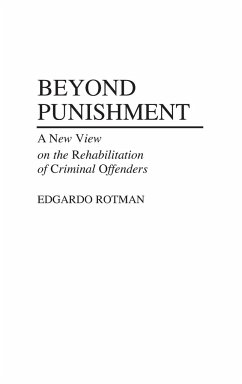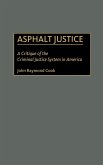This book is a comprehensive inquiry into the rehabilitation of criminal offenders and is based on extensive cross-cultural research on legal, ethical, philosophical, psychological, and sociological aspects of rehabilitation. Materials from these disciplines are integrated into a cohesive argument for a new concept of rehabilitation. Particularly innovative is the book's differentiation between various historical models that have been generally confounded until now, the distinction between an authoritarian and a liberty-centered concept of rehabilitation, the development of the latter into the notion of rehabilitation as a right and the definition of this right essentially as an opportunity. Beyond its contribution to theory, the book is also intended to shape policy and practices. After dealing with the general issues of the history of rehabilitation, the author chronicles the evolution of the idea from ancient China to the present and compares the legislative impact of this evolution in Anglo-American and civil law systems. Four historical models of rehabilitation are defined and examined. Rotman clarifies the controversy over rehabilitation by responding in detail to the full range of recent criticisms of the rehabilitative idea. After examining the complex interrelation of rehabilitation with imprisonment, the book reviews a number of past and present forms of rehabilitation in the community, with an eye for their potential for future development. Particular attention is given to rehabilitation of mentally disordered offenders, including the special treatment of sex offenders and European social therapeutic establishments. The book's audience will include anyone interested in law, sociology and criminal justice.
Hinweis: Dieser Artikel kann nur an eine deutsche Lieferadresse ausgeliefert werden.
Hinweis: Dieser Artikel kann nur an eine deutsche Lieferadresse ausgeliefert werden.








